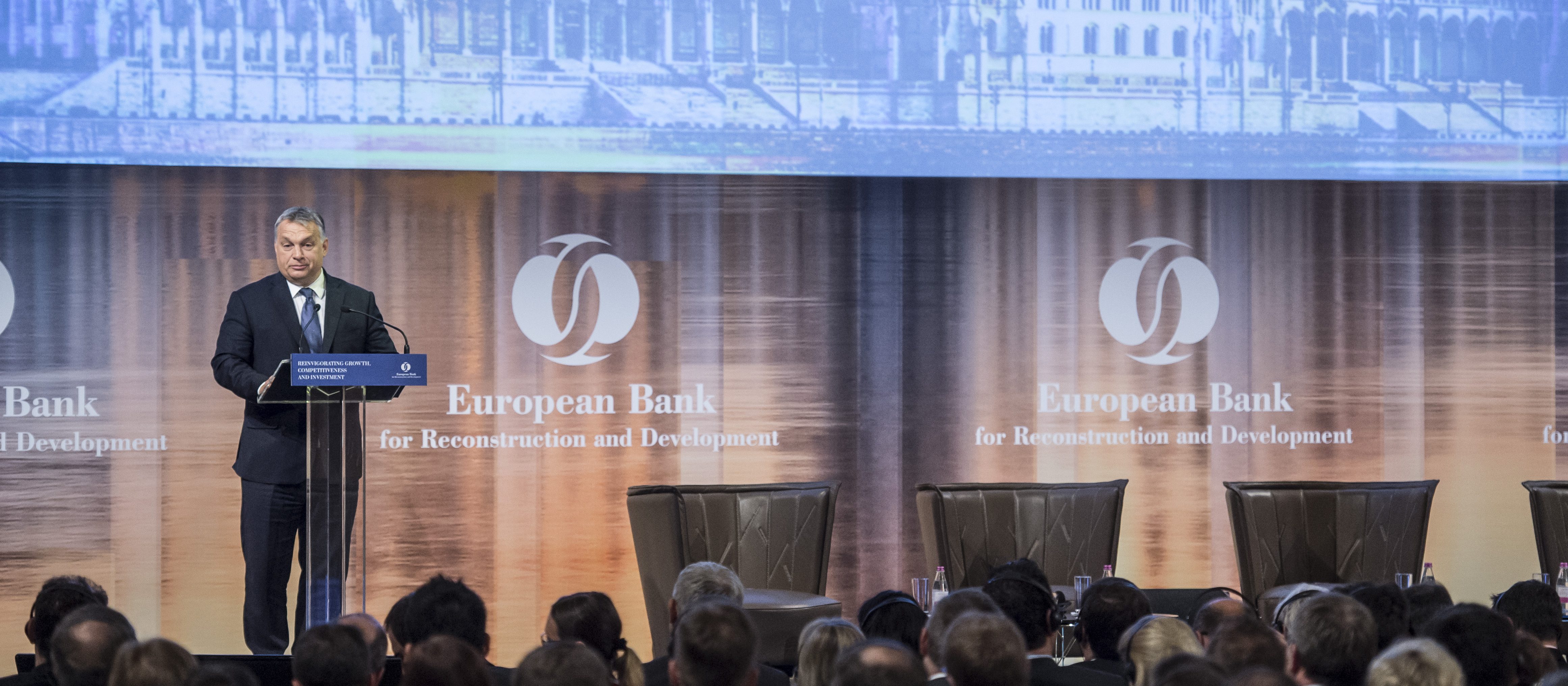
He argued that an end has come to a period in Hungary’s economic development during which competitiveness primarily stemmed from cheap labour. The country and Central Europe must face up to the phenomenon of “wage pressure”: the fact that political reality and economic development demand higher wages.
At the same time, the Prime Minister stressed that only businesses which are competitive are able to pay higher wages. It also follows from this, he explained, that the budget should withdraw less and less in terms of financial resources from the economy through taxation.
It is therefore necessary to simplify the corporation tax system, he said, and the current 19 per cent rate will have to be reduced over the next few years. Listing the tasks in hand, the Prime Minister said that personal income tax will also have to be further reduced, and a reduction in payroll taxes is likewise inevitable. Also among the tasks he mentioned were that businesses must be encouraged to increase their expenditure on research and development (R+D), and that state bureaucracy must be reduced. Mr. Orbán further listed the following: benefits related to the raising of children which are available through employment must be further developed; the workforce must become more competitive; there is a need for an adequately competitive banking sector and a competitive system of financial intermediaries.

Speaking about the banking sector, he said that “it is in good shape, and the extremely difficult and long shadow of earlier years is gradually disappearing”. The sector generates substantial revenues, he continued, but still falls behind the international vanguard in terms of efficiency and the use of new technologies.
Mr. Orbán also said that he agrees with the President of the EBRD that it will be difficult to create competitive economies in the region without the development of stock exchanges.
Regarding the economic policies of the past six years, the Prime Minister pointed out that his government has simultaneously begun to employ an economic policy mix seeking to achieve growth, fiscal discipline, rising employment and lower government debt. According to the textbooks this is not possible, he said; but practice proves that all these things can be achieved at the same time if we discard old habits.
He described 4 November 2016 as an iconic day in Hungary’s economic history, as with that day’s upgrade decision from Moody’s, “the entire spectrum of analysts recognise that the economic policy embarked upon in 2010 has successfully stabilised our economy, and consequently Hungary now has hope for success when participating in the global competition between national economies”.

At the same time he rejected claims which have branded the past six years in the Hungarian economy as “populist”. In his view, a policy which raises the number of taxpayers from 1.8 million to 4.4 million, which cuts government debt from 85 per cent to 75 per cent, and which reduces the budget deficit from over 7 per cent to less than 3 per cent in just six years can hardly be described as populist.
According to the Prime Minister, Hungary’s economic policy mix is not within the European Union’s mainstream approach to economics, and the Government’s position is much more that of a “reform opposition” within the EU. He added, however, that as part of Brussels’ future policy package he would like to see as many elements as possible taken from Hungary’s viable model, the workfare economy, which is not an ideology, “but only a possible approach”.
Western civilisation may return to true democracy
In his speech opening the conference, Mr. Orbán also commented on the US presidential election, which has resulted in a victory for the Republican candidate Donald Trump. He said that he was speaking on the day after an historic event, when “Western civilisation seems to be successfully releasing itself from the captivity of an ideology”.
The Prime Minister said that “the era which we call ‘liberal non-democracy’, and in which we have lived our lives over the past twenty years, has come to an end; we may finally return to true democracy, we may return to straightforward and frank speech freed from the paralysing constraints of political correctness”, and we may find the answers to the problems through pragmatic thinking which is “based on the foundations of common sense”.
“We are living through great days and great times”, Mr. Orbán said, indicating that he also views Brexit in this context. “Brexit is not a tragedy at all, it is not a defeat, but an attempt by a great nation to secure its success in a way which is different from the approach to success once adopted by everyone else”, the Prime Minister said.
He closed his speech by saying that, in his opinion, the entire Western world has recently taken some important steps towards an intellectual transformation, and that “this is not something which we should fear: we should instead see the opportunities which are inherent in it”.

